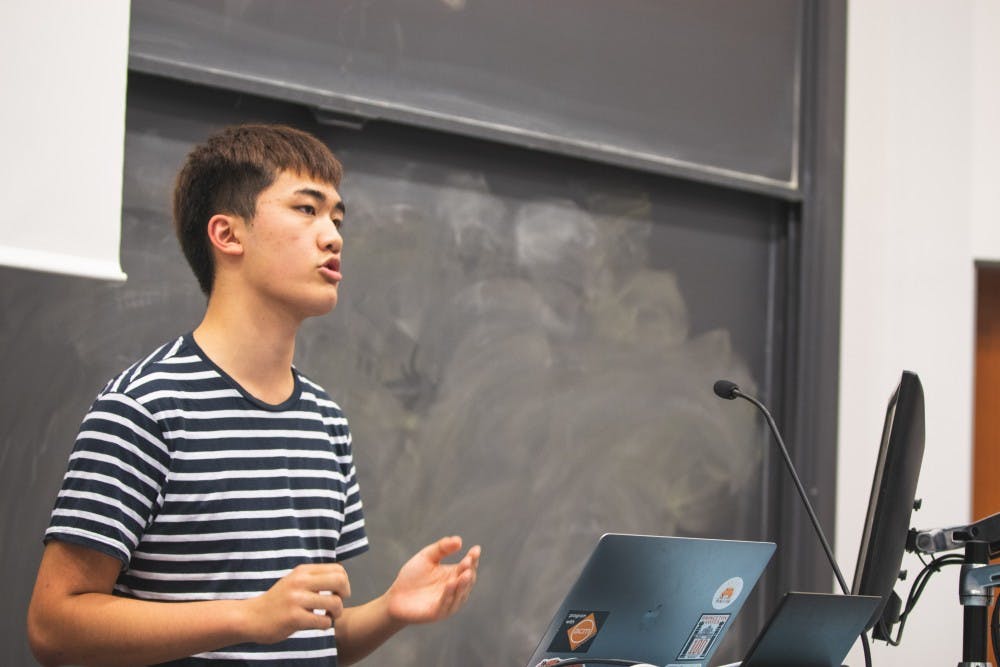This week, students will elect either U-Council Chair Allen Liu ’22 or Academics Chair Christian Potter ’22 as the next Undergraduate Student Government (USG) president. Given Liu’s dedication to expanding mental health resources and Potter’s past failure to advocate for students, The Daily Princetonian Editorial Board endorses Allen Liu for USG President.
As COVID-19 ravages the United States and the world, a USG that fights for students’ mental wellbeing is vital. In his platform, Liu has outlined five priorities, which range from increasing CPS staff diversity to making the University’s insurance policy more transparent, that will help students access mental health resources.
Though Potter’s platform makes mention of several measures to improve mental health, he has centered his candidacy on academic policy — the first and longest portion of his platform. But Potter’s record as Academics Chair reveals a troubling disregard for student wellbeing, especially during the pandemic.
Last spring, Potter had the opportunity to push for a grading policy that recognized COVID-19’s gravity and allowed Princeton’s most vulnerable students to place their health and wellbeing above academic stress. Instead, Potter’s committee initially went along with administrators’ patchwork approach, exposing students to intolerable grading inequities.
Though Liu sits on the Academic Committee, he does not bear responsibility for spring grading decisions. One member of the Academics Committee confirmed on background that at-large committee members played the same role as any member of the student body in grading policy.
Rather than participate in a debate that animated campus, Potter hedged. In an April message to students, Potter and incumbent USG President Chitra Parikh ’21 wrote that USG had not adopted “a stance on the larger PDF [pass/D/fail] mandatory/optional debate.” Instead, they had waited for “the administration’s verdict” and “chose to prioritize advocating for standardization in any policy that was finalized.” To be fair, Potter and Parikh did succeed in helping standardize the decentralized policy that the University first adopted.
But in the days leading to that decision, USG failed to conduct a single survey to learn which grading policies students preferred. According to Potter and Parikh, USG “determined that a poll would not have the influence students may have expected as the PDF policy had already been declared final by the administration.” Ergo, no outreach.
“We cannot disclose details or personal opinions from those debates,” they added, helpfully.

In a recent interview with the ‘Prince,’ Potter told a different story. “The policy that I pushed as Academics Chair, and the policy that we collectively pushed as the Academics Committee,” he said, “was a uniform, across-the-University optional PDF approach, which is exactly the same policy that we pushed and then implemented in the spring.” So much, then, for a policy that Nassau Hall imposed from above.
To be sure, Liu isn’t a perfect candidate. He voted to approve this fall’s outrageous $80,000 Lawnparties budget. Yet, when asked about his decision, he answered, “I, and I think any member of the Senate who was part of that unanimous vote, should take responsibility for that decision, whatever positive or negative implications it had.”
At a time when we’re all struggling, Liu demonstrates a willingness to learn — and, more importantly, a commitment to his fellow students.
144th Editorial Board

Members
Benjamin Ball ’21
Shannon Chaffers ’22
Rachel Kennedy ’21
Madeleine Marr ’21
Jonathan Ort ’21
Elizabeth Parker ’21
Mollika Jai Singh ’24
Zachariah Sippy ’23
Emma Treadway ’22
Ivy Truong ’21
Cy Watsky ’21
Editor’s Note: This piece has been updated to reflect Liu’s membership on the Academics Committee and to include a committee member’s characterization of their role in determining grading policy.








